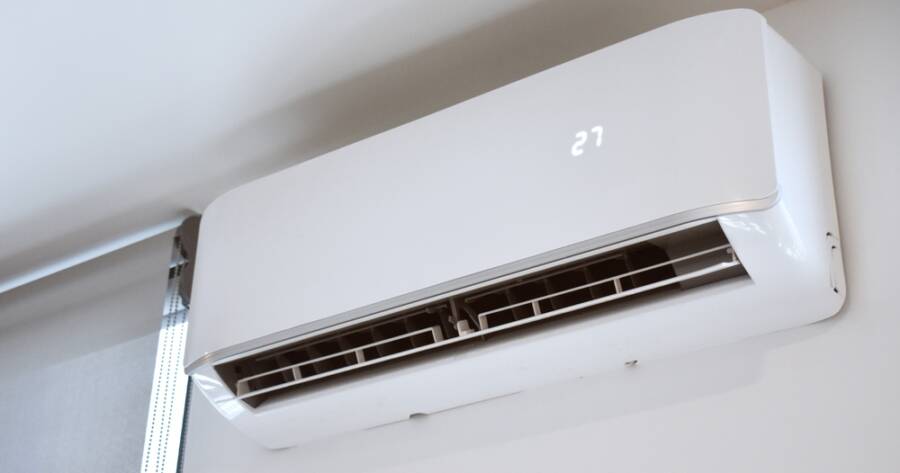Ductless air conditioners, or mini-split systems, are gaining popularity in 2024 for their efficiency, easy installation, and adaptability. They offer a practical solution for cooling homes without ductwork, making them a top choice for energy-conscious homeowners. Learn more today!
1. Energy Efficiency and Cost Savings
One of the most significant advantages of ductless air conditioners is their energy efficiency. Traditional central air conditioning systems can lose their cooling energy through ductwork, especially if the ducts are leaky or poorly insulated. Ductless systems, by design, eliminate this problem by delivering cooled air directly into the living space without the need for ducts.1
Ductless air conditioners use inverter technology, which allows them to adjust their cooling output based on the room’s needs rather than constantly cycling on and off like traditional units. This results in lower energy consumption and reduced utility bills. For homeowners looking to cut down on energy costs while staying cool, ductless air conditioners offer a compelling solution.
2. Ease of Installation and Flexibility
Ductless air conditioners are known for their straightforward installation process, making them a convenient option for a wide range of settings. Unlike traditional systems that require extensive ductwork, ductless units consist of an indoor unit and an outdoor compressor connected by a small conduit. This setup significantly reduces the time, cost, and disruption associated with installation.
This ease of installation makes ductless air conditioners ideal for older homes without existing ductwork, home additions, garages, basements, and even small apartments. They can be installed in virtually any room, offering a flexible cooling solution that adapts to the unique layout and needs of each space. Homeowners can choose from wall-mounted, ceiling-mounted, or floor-standing units, allowing for seamless integration into their home’s aesthetic.
3. Zoned Cooling and Personalized Comfort
Ductless air conditioners excel at providing zoned cooling, allowing homeowners to cool specific areas of their homes without wasting energy on unoccupied rooms. Each indoor unit operates independently, so you can set different temperatures for different rooms based on individual preferences. This is particularly beneficial for households with varying comfort needs or multi-story homes where temperature distribution can be challenging.
Zoned cooling not only enhances comfort but also maximizes energy savings by targeting only the areas that need cooling. For instance, you can keep the bedrooms cool at night while reducing energy usage in the living areas. This level of control is a key advantage of ductless systems, providing personalized comfort for every member of the household.
4. Improved Indoor Air Quality
Indoor air quality is a growing concern, especially as people spend more time indoors. Ductless air conditioners contribute to healthier indoor environments by including multi-stage filtration systems that reduce dust, pollen, allergens, and other airborne particles. Unlike ducted systems that can accumulate and distribute dust and contaminants, ductless units offer cleaner air circulation.
Regular maintenance, such as cleaning or replacing filters, ensures optimal performance and air quality. This feature is particularly beneficial for households with allergy sufferers or individuals with respiratory conditions, as it helps maintain a cleaner, healthier living space.
5. Quiet Operation and Enhanced Comfort
Noise can be a major drawback of traditional air conditioning systems, with loud compressors and air handlers disrupting the comfort of your home. Ductless air conditioners are designed to operate quietly, with the compressor located outside and the indoor units engineered for minimal noise.2
This quiet operation allows for a more peaceful indoor environment, whether you’re working, sleeping, or relaxing. The sleek and unobtrusive design of ductless units also contributes to a more aesthetically pleasing home, blending seamlessly into the décor without bulky components.
6. Eco-Friendly Cooling Solution
In 2024, environmental sustainability is a key consideration for many homeowners. Ductless air conditioners use eco-friendly refrigerants and are designed to be more energy-efficient, reducing their overall environmental impact. By choosing a ductless system, homeowners can lower their carbon footprint while enjoying superior cooling performance.
Additionally, ductless systems are compatible with renewable energy sources, such as solar power, further enhancing their appeal to eco-conscious consumers. As the world moves towards greener technologies, ductless air conditioners provide an effective and sustainable solution for home cooling.
Final Thoughts
Ductless air conditioners are revolutionizing home cooling by offering energy efficiency, ease of installation, and personalized comfort. Their ability to provide zoned cooling, improve indoor air quality, and operate quietly makes them an ideal choice for a wide range of homes. Whether you’re looking to upgrade your existing cooling system or seeking a solution for a space without ducts, ductless air conditioners offer the flexibility and performance needed to keep your home comfortable in 2024 and beyond. With their growing popularity, it’s clear that ductless air conditioners are more than just a trend—they’re a smart, modern solution for today’s cooling needs.
